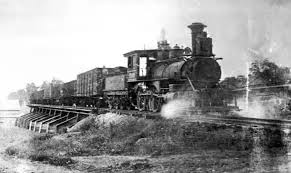SMELL, THE FALLEN ANGEL
Catagory:Reading
Author:Helen Keller
Posted Date:01/15/2025
Posted By:utopia online
FOR some inexplicable reason the sense of smell does not hold the high position it deserves among its sisters. There is something of the fallen angel about it. When it woos us with woodland scents and beguiles us with the fragrance of lovely gardens, it is admitted frankly to our discourse. But when it gives us warning of something noxious in our vicinity, it is treated as if the demon had got the upper hand of the angel, and is relegated to outer darkness, punished for its faithful service. It is most difficult to keep the true[78] significance of words when one discusses the prejudices of mankind, and I find it hard to give an account of odour-perceptions which shall be at once dignified and truthful.
In my experience smell is most important, and I find that there is high authority for the nobility of the sense which we have neglected and disparaged. It is recorded that the Lord commanded that incense be burnt before him continually with a sweet savour. I doubt if there is any sensation arising from sight more delightful than the odours which filter through sun-warmed, wind-tossed branches, or the tide of scents which swells, subsides, rises again wave on wave, filling the wide world with invisible sweetness. A whiff of the universe makes us dream of worlds we have[79] never seen, recalls in a flash entire epochs of our dearest experience. I never smell daisies without living over again the ecstatic mornings that my teacher and I spent wandering in the fields, while I learned new words and the names of things. Smell is a potent wizard that transports us across a thousand miles and all the years we have lived. The odour of fruits wafts me to my Southern home, to my childish frolics in the peach orchard. Other odours, instantaneous and fleeting, cause my heart to dilate joyously or contract with remembered grief. Even as I think of smells, my nose is full of scents that start awake sweet memories of summers gone and ripening grain fields far away.
The faintest whiff from a meadow[80] where the new-mown hay lies in the hot sun displaces the here and the now. I am back again in the old red barn. My little friends and I are playing in the haymow. A huge mow it is, packed with crisp, sweet hay, from the top of which the smallest child can reach the straining rafters. In their stalls beneath are the farm animals. Here is Jerry, unresponsive, unbeautiful Jerry, crunching his oats like a true pessimist, resolved to find his feed not good—at least not so good as it ought to be. Again I touch Brownie, eager, grateful little Brownie, ready to leave the juiciest fodder for a pat, straining his beautiful, slender neck for a caress. Near by stands Lady Belle, with sweet, moist mouth, lazily extracting the sealed-up cordial from timothy and clover, and dreaming of[81] deep June pastures and murmurous streams.
The sense of smell has told me of a coming storm hours before there was any sign of it visible. I notice first a throb of expectancy, a slight quiver, a concentration in my nostrils. As the storm draws nearer, my nostrils dilate the better to receive the flood of earth-odours which seem to multiply and extend, until I feel the splash of rain against my cheek. As the tempest departs, receding farther and farther, the odours fade, become fainter and fainter, and die away beyond the bar of space.
I know by smell the kind of house we enter. I have recognized an old-fashioned country house because it has several layers of odours, left by a succession of[82] families, of plants, perfumes, and draperies.
In the evening quiet there are fewer vibrations than in the daytime, and then I rely more largely upon smell. The sulphuric scent of a match tells me that the lamps are being lighted. Later I note the wavering trail of odour that flits about and disappears. It is the curfew signal; the lights are out for the night.
Out of doors I am aware by smell and touch of the ground we tread and the places we pass. Sometimes, when there is no wind, the odours are so grouped that I know the character of the country, and can place a hayfield, a country store, a garden, a barn, a grove of pines, a farmhouse with the windows open.
The other day I went to walk toward a[83] familiar wood. Suddenly a disturbing odour made me pause in dismay. Then followed a peculiar, measured jar, followed by dull, heavy thunder. I understood the odour and the jar only too well. The trees were being cut down. We climbed the stone wall to the left. It borders the wood which I have loved so long that it seems to be my peculiar possession. But to-day an unfamiliar rush of air and an unwonted outburst of sun told me that my tree friends were gone. The place was empty, like a deserted dwelling. I stretched out my hand. Where once stood the steadfast pines, great, beautiful, sweet, my hand touched raw, moist stumps. All about lay broken branches, like the antlers of stricken deer. The fragrant, piled-up sawdust swirled and tumbled about me.[84] An unreasoning resentment flashed through me at this ruthless destruction of the beauty that I love. But there is no anger, no resentment in nature. The air is equally charged with the odours of life and of destruction, for death equally with growth forever ministers to all-conquering life. The sun shines as ever, and the winds riot through the newly opened spaces. I know that a new forest will spring where the old one stood, as beautiful, as beneficent.
Touch sensations are permanent and definite. Odours deviate and are fugitive, changing in their shades, degrees, and location. There is something else in odour which gives me a sense of distance. I should call it horizon—the line where odour and fancy meet at the farthest limit of scent.[85]
Smell gives me more idea than touch or taste of the manner in which sight and hearing probably discharge their functions. Touch seems to reside in the object touched, because there is a contact of surfaces. In smell there is no notion of relievo, and odour seems to reside not in the object smelt, but in the organ. Since I smell a tree at a distance, it is comprehensible to me that a person sees it without touching it. I am not puzzled over the fact that he receives it as an image on his retina without relievo, since my smell perceives the tree as a thin sphere with no fullness or content. By themselves, odours suggest nothing. I must learn by association to judge from them of distance, of place, and of the actions or the surroundings which are the usual occasions for them,[86] just as I am told people judge from colour, light, and sound.From exhalations I learn much about people. I often know the work they are engaged in. The odours of wood, iron, paint, and drugs cling to the garments of those that work in them. Thus I can distinguish the carpenter from the ironworker, the artist from the mason or the chemist. When a person passes quickly from one place to another I get a scent impression of where he has been—the kitchen, the garden, or the sick-room. I gain pleasurable ideas of freshness and good taste from the odours of soap, toilet water, clean garments, woollen and silk stuffs, and gloves.
I have not, indeed, the all-knowing scent of the hound or the wild animal. None but the halt and the blind need[87] fear my skill in pursuit; for there are other things besides water, stale trails, confusing cross tracks to put me at fault. Nevertheless, human odours are as varied and capable of recognition as hands and faces. The dear odours of those I love are so definite, so unmistakable, that nothing can quite obliterate them. If many years should elapse before I saw an intimate friend again, I think I should recognize his odour instantly in the heart of Africa, as promptly as would my brother that barks.
Once, long ago, in a crowded railway station, a lady kissed me as she hurried by. I had not touched even her dress. But she left a scent with her kiss which gave me a glimpse of her. The years are many since she kissed[88] me. Yet her odour is fresh in my memory.
It is difficult to put into words the thing itself, the elusive person-odour. There seems to be no adequate vocabulary of smells, and I must fall back on approximate phrase and metaphor.
Some people have a vague, unsubstantial odour that floats about, mocking every effort to identify it. It is the will-o'-the-wisp of my olfactive experience. Sometimes I meet one who lacks a distinctive person-scent, and I seldom find such a one lively or entertaining. On the other hand, one who has a pungent odour often possesses great vitality, energy, and vigour of mind.
Masculine exhalations are as a rule stronger, more vivid, more widely differentiated than those of women. In[89] the odour of young men there is something elemental, as of fire, storm, and salt sea. It pulsates with buoyancy and desire. It suggests all things strong and beautiful and joyous, and gives me a sense of physical happiness. I wonder if others observe that all infants have the same scent—pure, simple, undecipherable as their dormant personality. It is not until the age of six or seven that they begin to have perceptible individual odours. These develop and mature along with their mental and bodily powers.


.jpg)














 👁 :280
👁 :280
 👁 :1
👁 :1
 👁 :
👁 :
 👁 :312
👁 :312
 👁 :390
👁 :390
 👁 :342
👁 :342